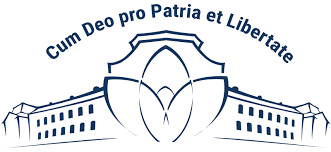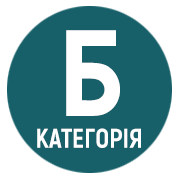SLOW TOURISM AT LAKE TISZA: EXPERIENCE AND DEVELOPMENT PROSPECTS
DOI:
https://doi.org/10.32782/2786-5843/2024-3-4Kulcsszavak:
slow tourism, rural development, Hungary, Lake Tisza, Sarud Experience Village.Absztrakt
Slow tourism is growing quickly in Hungary. It offers the opportunity to immerse oneself in a new way of life and experience an old-new way of life. It represents a sustainable form of tourism focusing on slowing down the pace of life and exploring local culture, nature, gastronomy and communities. The experiential approach to tourism aims to recharge the body, mind and spirit while minimizing the ecological footprint. The study explores slow tourism at Lake Tisza, focusing on the Sarud Experience Village. It examines how the village uses local resources and resident involvement to create a distinctive slow tourism experience. The primary objective is to analyze the impact of the Sarud Experience Village on visitor satisfaction and the quality of life of the local community. The research aims to show how slow tourism principles enhance visitor experiences while meeting their needs. It combines quantitative and qualitative methods. Primary data were collected through a questionnaire survey among regular visitors to the Sarud Experience Village. Secondary data included a literature review on slow tourism and rural development, along with field visits and observations. The Sarud Experience Village successfully applies slow tourism principles by focusing on traditional lifestyles and a close connection to nature. Survey results indicate high visitor satisfaction with services, the environment, and staff professionalism, though feedback on pricing was mixed. The success of the Sarud Experience Village model suggests potential applications in other rural areas aiming to boost tourism while preserving local culture and environment. The project demonstrates that slow tourism can be a sustainable and impactful approach to rural development, offering economic benefits and improving residents' quality of life. The Sarud Experience Village exemplifies successful slow tourism by balancing visitor satisfaction with community development. The research highlights the importance of integrating local resources and resident involvement in creating authentic and sustainable tourism experiences.
Hivatkozások
Benjamin, S., Dillette, A., Alderman, D. H. (2020): We Can’t Return to Normal: Committing to Tourism Equity in the Post-Pandemic Age. Tourism Geographies, 22(3). pp. 476–483. DOI: https://doi.org/10.1080/14616688.2020.1759130
Piskóti, I., Nagy, K., Marien A., Papp A. (2022): Destination Marketing – Modelling Inspirations for the Abaúj Strategy. Turisztikai és Vidékfejlesztési Tanulmányok, Vol. VII No. 1, pp. 35–57.
Balaban, E., Keller, K. (2023): A Literature Review of Slow Tourism. In: Turizmus Bulletin, Vol. XXIII, No. 5, pp. 47–57. DOI: O10.14267/TURBULL.2023v23n2.5
Balaban, E., Csapody B. (2023): The Main Directions of the «Slow Movement» – Tourism, Catering and Urban Governance. In: Keller K (ed.): Tourism Niche Products, Academic Publishing House, 2023.
El Archi, Y., Benbba, B., Nizamatdinova, Z., Issakov, Y., Vargáné, G. I., Dávid L. D. (2023): Systematic Literature Review Analysing Smart Tourism Destinations in Context of Sustainable Development: Current Applications and Future Directions. Sustainability 15(6), Paper: 5086, pp 1–15. DOI: doi.org/10.3390/su15065086
Tóth, G., Dávid, L. D., Vasa, L. (2014): The Role of Transport in European Tourism Flows. In: Acta Geographica Slovenica, 54:2, pp. 311–320. https://ojs.zrc-sazu.si/ags/article/view/1915
Pécsek, B. (2014): Accelerating Time, Slowing Tourism: Modelling Slow Tourism. In: Turizmus Bulletin, Vol. XVI, No. 1, pp. 3–10.
Dávid, L., Tóth, G., Bujdosó, Z., Herneczky, A. (2007): Indicators of the Relationship between Tourism and Regional Competitiveness through the Example of the Mátra Region. Észak-Magyarországi Stratégiai Füzetek, 4(1). pp. 3–20.
Vasvári, M., Dávid, L., Szabó, Sz. (2011): Some Changes in Land Use and Consequences at Lake Tisza. Gazdálkodás, Vol. 55, No. 4, pp. 395–406.
Várhelyi, T. (2019): Strategic Options for the Development of Lake Tisza. Conference Proceedings on the Occasion of the 10th Anniversary of the Founding of the Department of Tourism of Eszterházy Károly University, pp. 165–172.
Priatmoko, S., Kabil, M., Vasa, L., Pallás, E. I., Dávid, L. D. (2021): Reviving an Unpopular Tourism Destination through the Placemaking Approach: Case Study of Ngawen Temple, Indonesia. Sustainability, 2021, 13, 6704. DOI: https://doi.org/10.3390/su13126704






